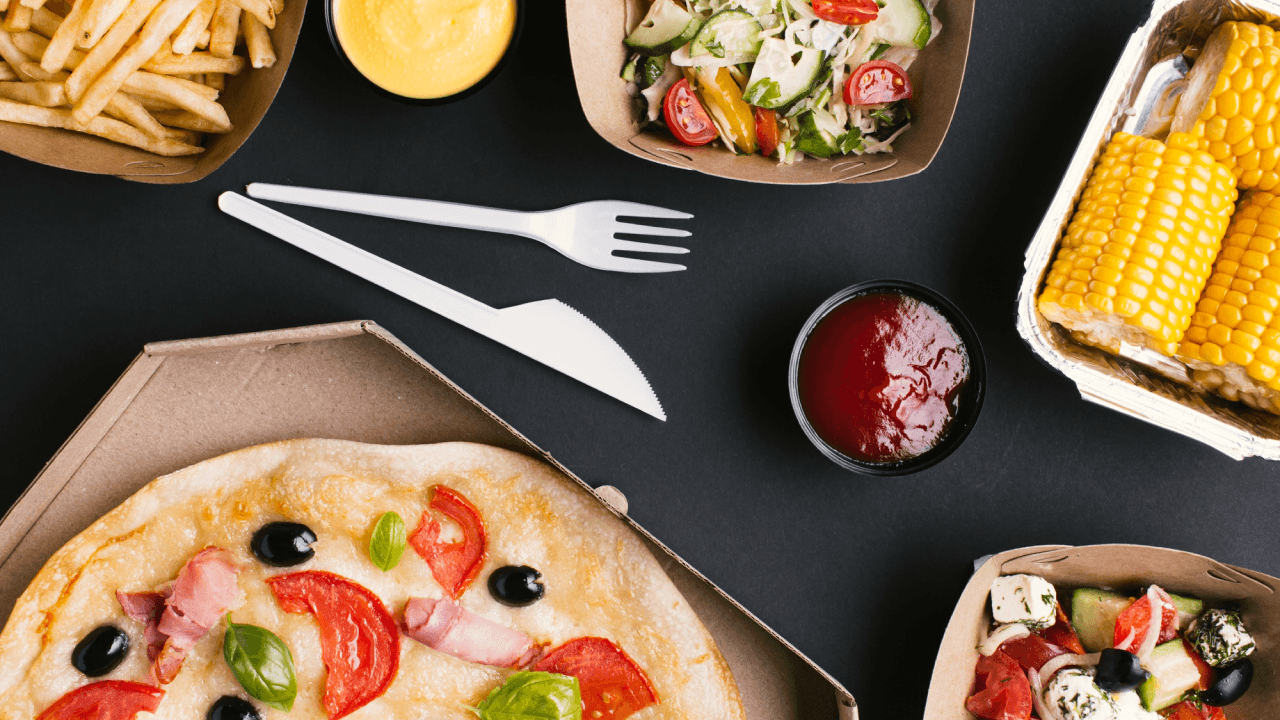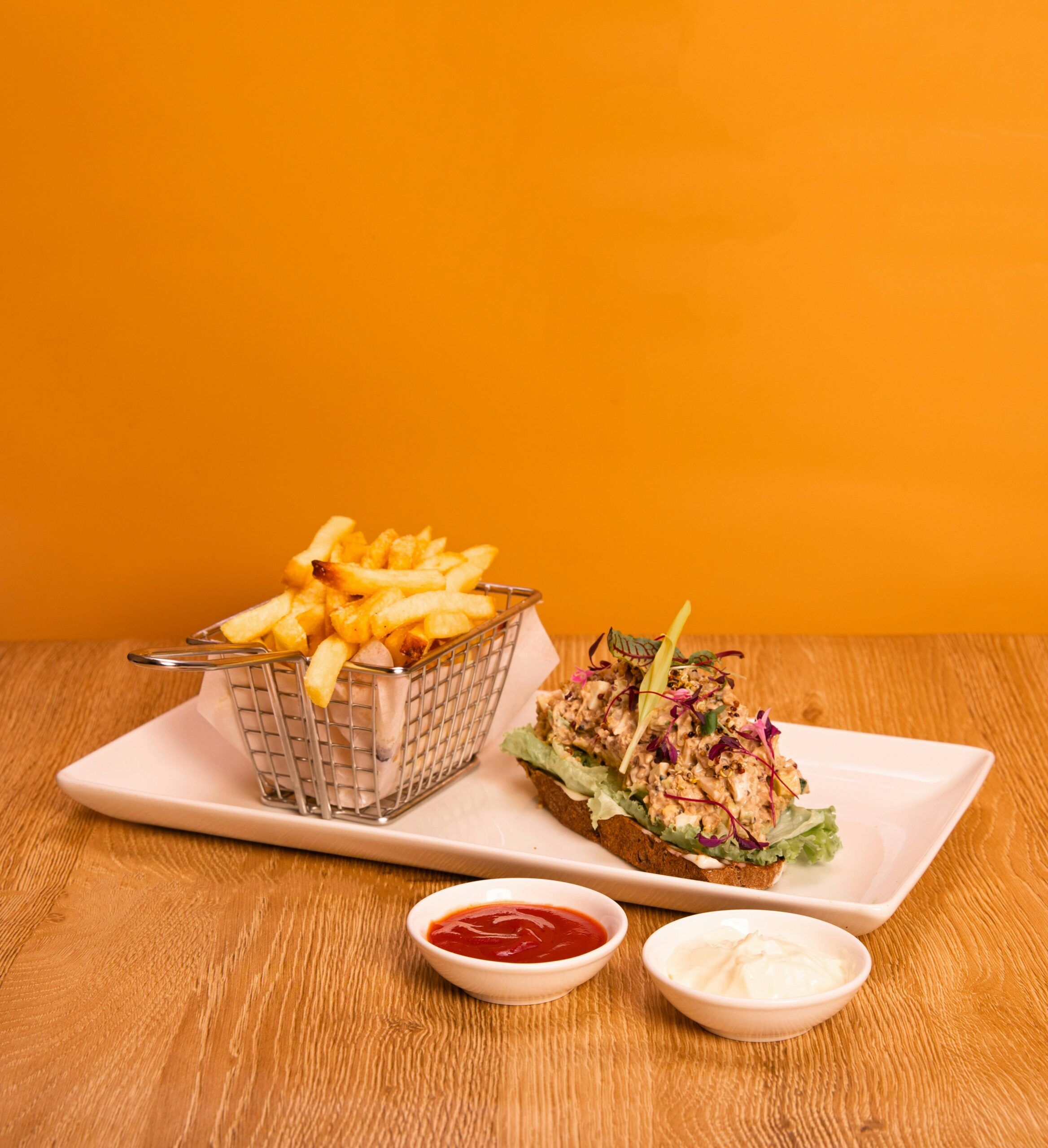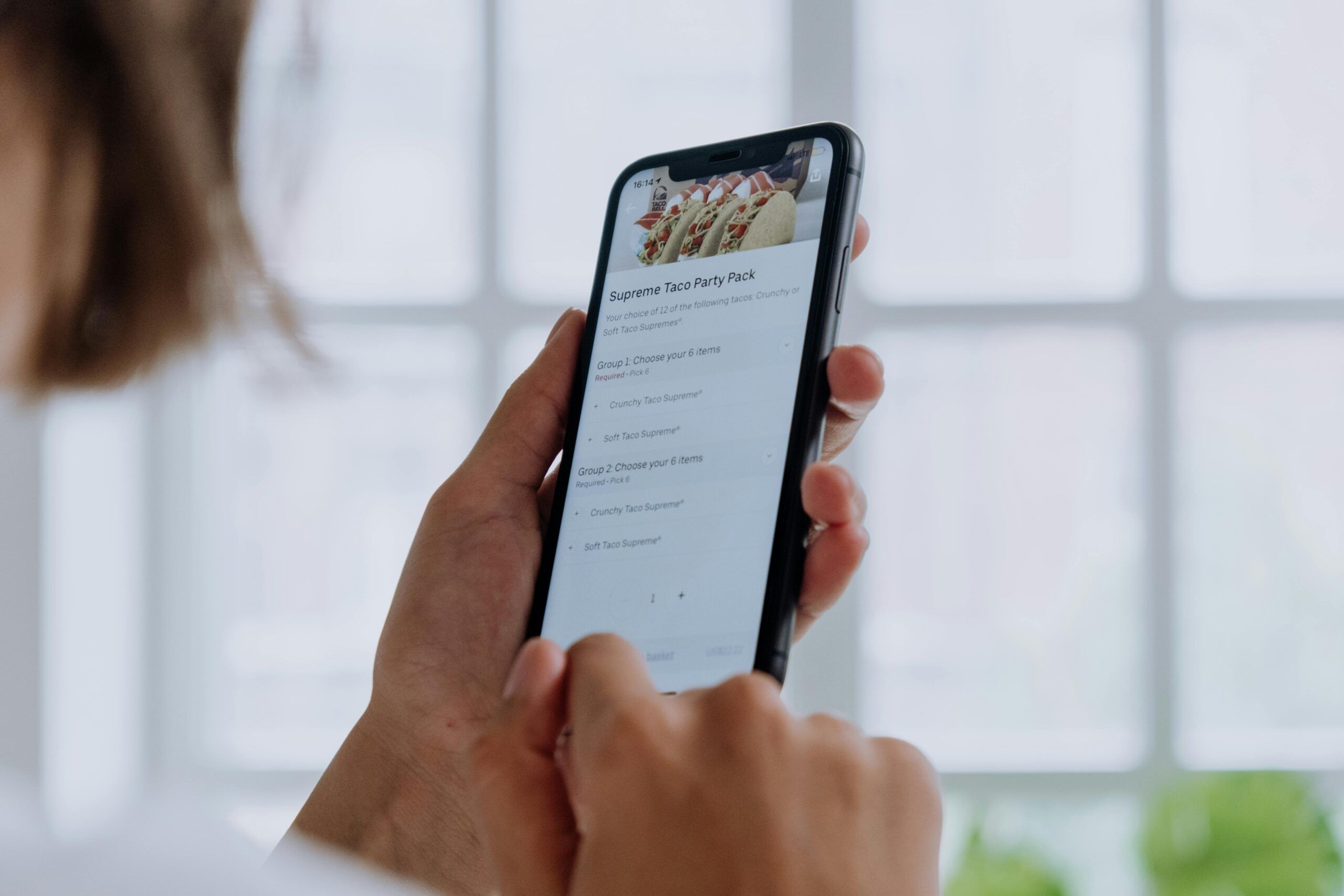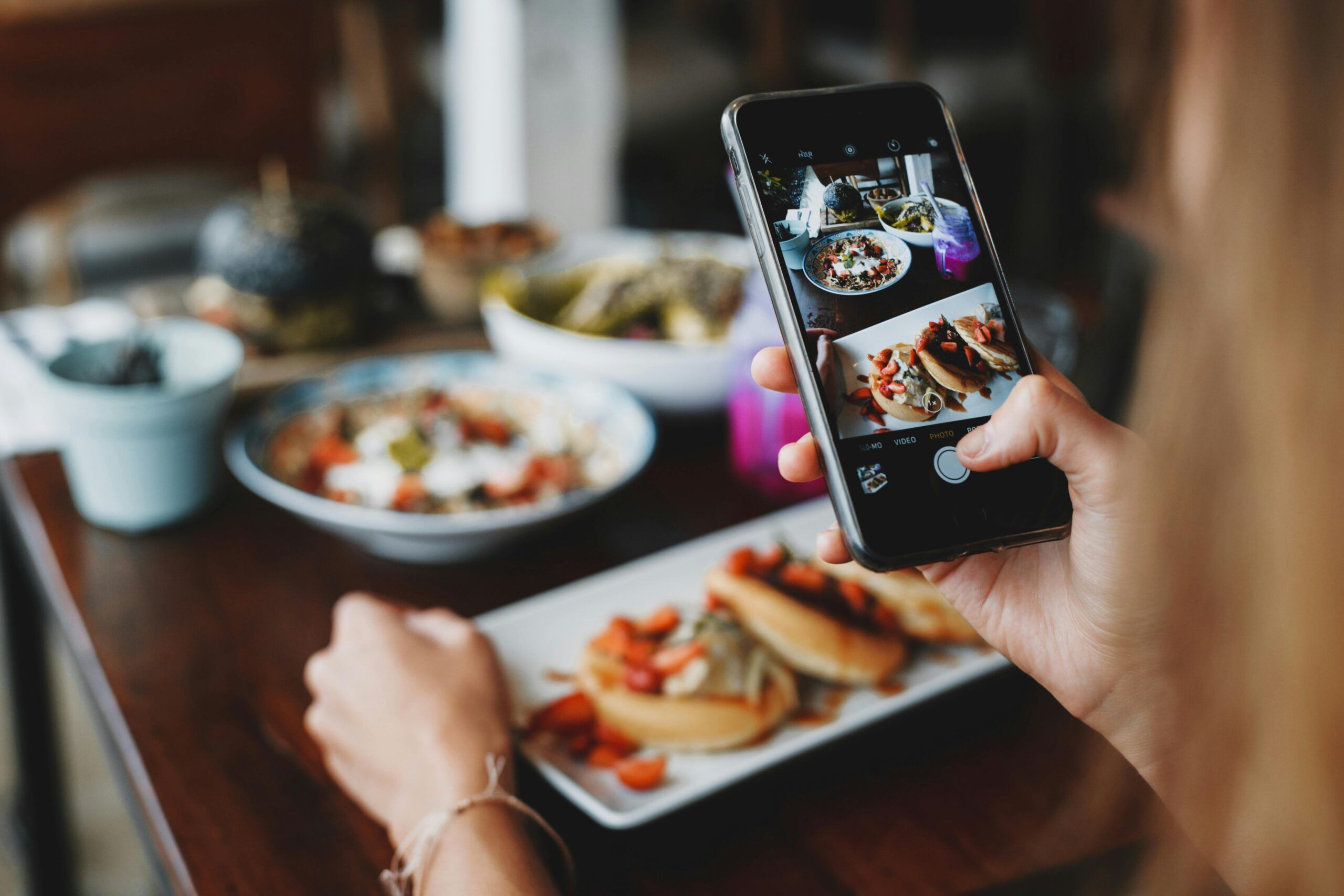- Overview Of The Big Three – DoorDash, Grubhub, and Uber Eats
- Understanding The Costs And Fee Structure Of Each Platform
- Importance Of Using Different Delivery Apps
- Orders.co Is The Ultimate Solution For Your Restaurant Order Management
- Finding The Perfect Fit For Your Restaurant
The food delivery sector has grown significantly, becoming integral to the restaurant industry’s revenue stream.
A recent report from Statista highlights that the revenue in the online food delivery segment is projected to reach US$353.30 billion in 2024, underlining the rising importance of food delivery services.
Among the front-runners in this growing market are DoorDash, Grubhub, and Uber Eats, each offering distinctive benefits for restaurants.
This article will explore the DoorDash vs. Grubhub vs. UberEats comparison to assist restaurant owners in selecting the platform that best suits their business needs.
Overview Of The Big Three – DoorDash, Grubhub, and Uber Eats
DoorDash, Uber Eats, and Grubhub are the top 3 online food ordering apps in the US with 55%, 22%, and 17% market shares, respectively.
Each platform has developed unique strategies to dominate certain demographics and geographic areas, catering to the diverse needs of their extensive user bases.
Here is the overall DoorDash vs. Grubhub vs. UberEats market share picture:

Market Reach and Popularity
DoorDash has rapidly expanded its footprint across the United States, becoming the market leader in sales and popularity. It appeals to a wide demographic, focusing on suburban areas and smaller towns previously underserved by other platforms.
Grubhub maintains a strong presence in major cities, leveraging its early entry into the market. Known for its robust integration with Yelp, Grubhub connects with a diverse user base keen on exploring local dining options.
Uber Eats benefits from its global brand recognition, reaching an extensive network of cities worldwide. It attracts a tech-savvy audience that appreciates the convenience of managing both food delivery and transportation under one app.
Key Features and Offerings
DoorDash
Unique Advantages Offered: DoorDash stands out with its DashPass subscription, which provides free delivery on orders from certain restaurants, making it attractive to frequent users looking for savings. The platform also builds strong partnerships with local businesses, enhancing its community-focused brand image.
Special Services: Recognizing the changing consumer preferences, DoorDash has introduced options like contactless delivery and group orders, enhancing user convenience and safety.
Grubhub
Focus on Restaurant Loyalty: Grubhub promotes restaurant loyalty programs that encourage repeat business directly through its platform, offering special discounts and rewards.
Longer Market Presence: Grubhub has been in the food delivery industry longer, which has allowed it to build a strong, loyal customer base and a deep understanding of the market.
Uber Eats
Fast Delivery: Leveraging the logistical expertise of its parent company (Uber), Uber Eats is renowned for its quick delivery times, often outpacing competitors in urban areas.
Additional Services: With Uber One, the service offers a subscription that combines perks across food delivery and transportation, adding considerable value for users who are also frequent riders.
Each platform’s distinct approach to market penetration and user engagement presents unique opportunities and considerations for restaurant owners aiming to maximize their reach and adapt to the digital dining economy.
Understanding The Costs And Fee Structure Of Each Platform
Each platform has its own set of fees that can significantly affect overall earnings and operational strategy.
Service and Commission Fees
Each of them charges a commission on orders, which can vary significantly:
DoorDash typically charges a commission rate ranging from 15% to 30% per order, depending on the partnership level. They also offer different service packages that can alter these percentages.
Grubhub‘s commission rates can reach 30% per order, taking into account the marketing and promotional support provided through the platform.
Uber Eats charges a commission of up to 30%, with variability based on factors like location and agreement terms.
Learn more about How much does DoorDash charge restaurants, How much does Uber Eats charge restaurants and How much does Grubhub charge restaurants in our blog posts.
Delivery and Customer Fees
Delivery fees are generally paid by the customer, but sometimes, the restaurant covers part of the cost to stay competitive.
- DoorDash and Uber Eats often allow restaurants to choose whether to pass delivery fees fully to customers or cover a portion to attract more orders.
- Grubhub provides flexibility in setting delivery charges, which can be a fixed cost or a percentage of the order total.
Restaurants must also contend with additional charges, such as small order fees and higher service charges during peak times.
Marketing and Promotion Costs
Investing in promotional activities through these platforms can increase visibility but comes with additional costs:
- DoorDash offers promotional tools like featured listings and targeted ads, which can increase order volume with a $100 credit per store.
- Grubhub allows for promotional campaigns within the app, which can help restaurants stand out but require 5-15% commission fee based on the plan.
- The Uber Eats Premium plan provides up to $100 in matching ad credits monthly based on the previous month’s spending. For example, spend $55 on ads in February and receive $55 in credits on March 1, expiring by the end of the month.
Importance Of Using Different Delivery Apps
Using different delivery apps is important for restaurants because they offer many key advantages.
By being on multiple delivery platforms, restaurants can reach a broader audience, attracting more customers than they would on just one app.
This presence on multiple apps also diversifies revenue streams, providing a more stable income as they are not reliant on a single source for orders.
Each delivery app offers unique promotional tools and marketing opportunities, which restaurants can use to promote their brand and attract new customers with special offers and discounts.
Being on several platforms also gives restaurants the flexibility to adapt to changes in the market or consumer behavior.
For instance, if one platform sees a decrease in orders, the impact is minimized because the restaurant can still receive orders from other sources.
More platforms mean the potential for more orders, especially during busy times or special events, which can significantly boost sales.
Orders.co Is The Ultimate Solution For Your Restaurant Order Management
Partnering with different delivery apps can significantly boost a restaurant’s reach and sales. However, it also presents some operational challenges.
Managing orders from multiple platforms often means juggling several tablets and interfaces, which can lead to confusion, inefficiencies, and errors. This complexity can overwhelm staff and negatively impact service quality.
Consolidate All Your Online Orders with Orders.co
Orders.co’s restaurant order management system allows restaurants to handle all orders through one device, saving counter space and simplifying operations.
This system consolidates orders not only from third-party delivery apps like DoorDash, Uber Eats, and Grubhub but also from your own custom ordering website.
This consolidation leads to increased efficiency by reducing the time spent managing multiple devices.
Unified Printing and Order Tracking
The platform supports consistent order ticket printing and real-time updates, enhancing kitchen management and reducing wait times. It can decrease order errors, ensuring clear and uniform instructions for kitchen staff.
Real Results with Orders.co
Hundreds of restaurants have successfully integrated multiple delivery platforms, optimizing their operations with the help of Orders.co.
C-Viche Express, a Mexican seafood restaurant in the San Fernando Valley, achieved a 40% increase in delivery app revenue by consolidating orders into a single platform with Orders.co.
Pop’s Artisanal Creamery, known for its unique ice cream flavors, saw a significant revenue increase across its three locations by streamlining order processes with Orders.co.
Similarly, Jonah’s Kabob, a Mediterranean eatery, achieved a 40% revenue increase in one month by integrating delivery apps into Orders.co’s restaurant order management system.
Finding The Perfect Fit For Your Restaurant
Let’s summarize.
- Using multiple delivery platforms is essential for maximizing your restaurant’s reach and profitability.
- Each platform offers unique benefits.
- DoorDash provides broad market coverage and efficient delivery, making it ideal for expanding your customer base.
- Grubhub offers flexible payment options and valuable customer insights, which are great for targeted marketing.
- Uber Eats is known for its advanced technology and fast delivery, enhancing customer satisfaction.
Whatever delivery app you choose (though it’s best to partner with all of them), streamlining your online orders management with a restaurant order management system is essential.
It will reduce errors, improve efficiency, and provide valuable data insights to maximize each platform’s benefits.
Orders.co’s restaurant order management system eliminates the need for multiple tablets.
It also offers comprehensive reporting and analytics to track sales performance and make data-driven business decisions.
Additionally, Orders.co integrates with POS systems for streamlined order processing and offers 24/7 support to ensure smooth operations. This tool is ideal for restaurants aiming to enhance efficiency and customer satisfaction!
So don’t hesitate. Schedule a free demo with Orders.co today to see how it can help your restaurant business thrive!



